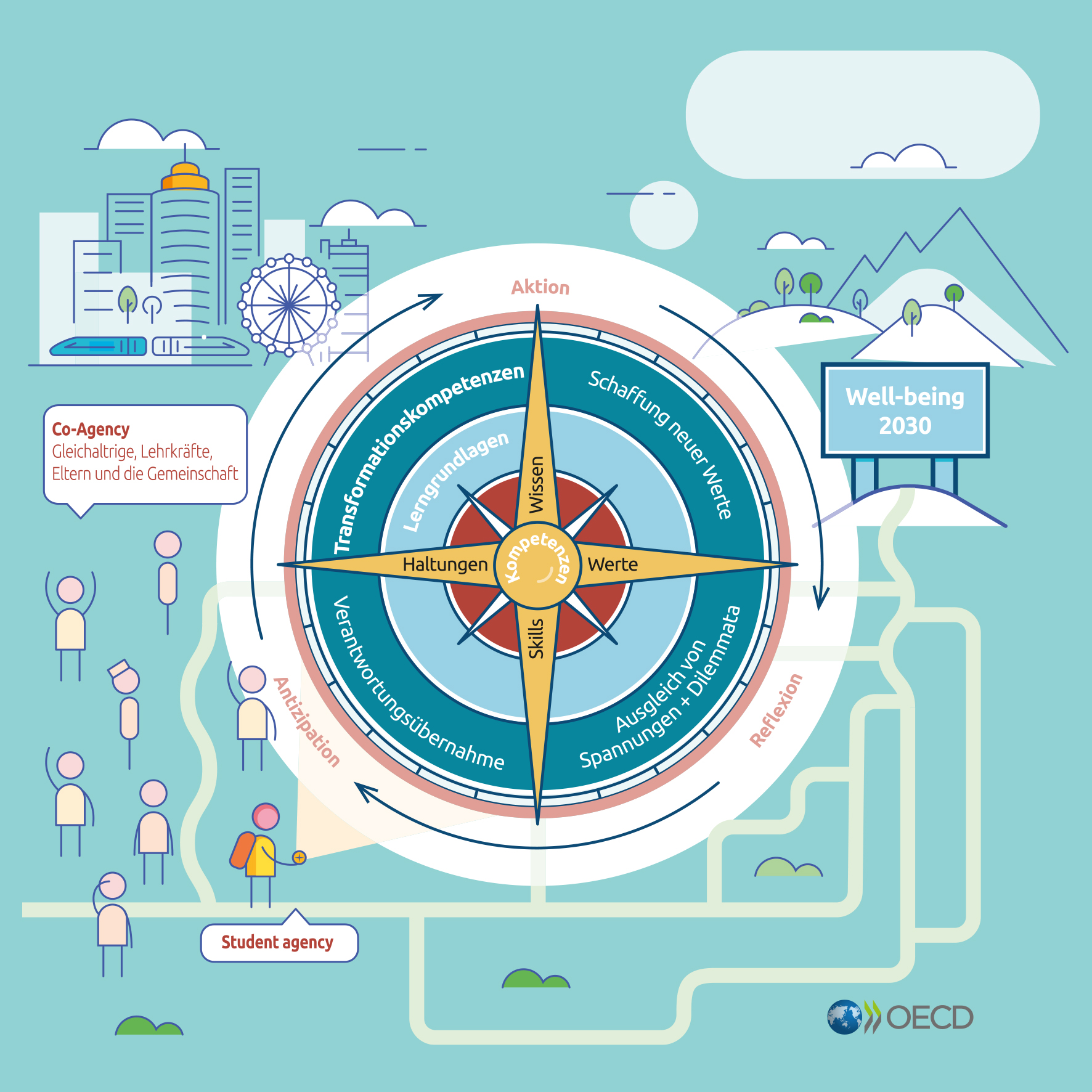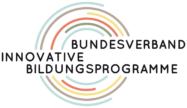State of the art
The Duke Award uses various methods, such as mentoring and experiential nature experiences, to encourage young people in their holistic personal development in the long term. The core of the concept is experiencing self-efficacy by setting smart goals, forming habits and celebrating successes.
The impact of our methodology has been widely scientifically validated, indicating a robust body of research. Here is a research insight into our various tools.
The award consists of the areas of commitment, fitness, talent and expedition and thus enables holistic personal development.
Article 26 of the Universal Declaration of Human Rights declares that education must be directed to the full development of the human personality and to the strengthening of respect for human rights and fundamental freedoms. (Universal Declaration of Human Rights 1948)
According to Bhoite and Shinde (2019), personality development encompasses both innate characteristics and the development of cognitive and behavioural patterns that are shaped through interactions and personal growth. The formation of personality does not end in childhood, but the development of physical, mental and social skills is a lifelong process. At its best, character development takes a holistic approach that aims to unfold a person’s full potential in different areas of life in order to enable a fulfilling and authentic life.
The co-founder of the Duke Award, Kurt Hahn, identified several signs of decay in society that impair personality development:
- The decline of human involvement and responsibility: many young people do not know how and where they can volunteer (45.5%) or what strengths they could bring to a commitment (31.8%). In addition, many would like more recognition and proof of qualifications for their commitment. (German Children and Youth Foundation GmbH, 2020)
- The decline of diligence: There is a lack of diligence, especially when it comes to more complicated work. Projects such as the Gold Project and Talents are intended to remedy this.
- The decline of personal initiative and personal responsibility: Initiatives such as expeditions are intended to help promote these skills.
- The decline of physical fitness: This area is addressed through fitness and health measures, as also anchored in the Sustainable Development Goals (SDG 3).
These approaches and measures aim to promote the personality holistically and counteract the aforementioned signs of deterioration in order to help young people lead fulfilling and committed lives. Hahn’s philosophical roots are described in Klaus Vogels’ mentoring guide:
Philosophical roots of the Award
In the activity areas, Award participants look for activities on their own initiative and set themselves smart goals (specific, measurable, attractive, realistic, time-bound). This promotes self-efficacy.
Self-efficacy refers to a person’s confidence in their own ability to successfully master certain tasks or challenges. This concept, introduced by psychologist Albert Bandura, plays a key role in motivation theories. People with high self-efficacy are convinced that they can achieve the desired results through their own actions, which often leads to greater perseverance and a focus on success.
Experiencing self-efficacy works particularly well when the following factors are present (see Bandura):
- Smart goal setting
- Feedback and reflection through mentoring
- Celebration of successes
Studies show that self-efficacy is closely linked to academic success and motivation to learn. Pupils who believe in their own abilities often perform better and are more motivated. (Schunk 1991, Bandura)
The process of goal setting, reflection and goal achievement is accompanied by an award leader (mentor).
The aim of mentoring programmes is to promote the mentee’s personal development, learning and progress (Schnebel, 2020).
The opportunities offered by such programmes are manifold (Raufelder & Ittel, 2012):
- They have a positive impact on academic development, including performance and academic self-concept, as well as on general development in terms of self-esteem and friendships.
- They can also lead to a decrease in delinquent behaviour and reduced substance abuse in previously offending students.
- They also improve the class and school climate, school satisfaction and individual well-being.
- Mentoring also serves as a measure in the promotion of gifted children and the support of children and young people with special challenges (Schnebel, 2020).
The effectiveness of these programmes depends heavily on the prior relationship, quality and longevity of the mentoring relationship (Rhodes et al. 2006). One challenge is that the content of mentoring programmes is rarely integrated into teacher education curricula (Schnebel, 2020). In addition, mentoring and coaching programmes in schools are still rather rare (Raufelder & Ittel, 2012).
An important part of the award programme are 2 to 4-day self-planned expeditions in nature.
Experiential education is an approach that contributes to personal development through intensive experiences in nature. In a meta-analysis by Bowen and Neill (2013), existing empirical studies were analysed to calculate an overall effect size. This study included 17,728 participants, 62% male and 38% female, aged 10 to 17 years from the USA.
The results of the analysis show that experiential education is an effective therapeutic method that offers both short- and long-term benefits. These findings support the inclusion of experiential education as a valuable option in the therapeutic context and provide significant benchmarks for its effectiveness compared to alternative or no interventions. Similar effect sizes were also found in the meta-studies by Hattie et al. (1997) and Laidlaw (2000), which examined adventure programmes in general.
Furthermore, adventure education contributes positively to the UN sustainability goals. Experiences with nature in childhood and adolescence are formative for nature-related behaviour in adulthood (BPB 2022; Gebauer 2009). Positive experiences of nature promote the willingness to behave in a nature-friendly way, to accept restrictions to protect nature and to get involved in nature conservation (Rosa & Collado). These experiences correlate with environmental awareness and a better understanding of environmental protection (Gebauer 2009).
Access to nature is particularly important for less privileged groups. Studies, particularly from the USA, show that children and young people from educationally disadvantaged and low-income families are at a disadvantage in terms of access to nature (BPB 2022). This underlines the importance of programmes that enable this access and promote it as part of a good life.
For an overview of the current state of research, see for example DeVille et al. (2021), Rosa et al. (2018), and Rosa & Collado (2019).
Participation in the award promotes future skills.
Because the central question of the 21st century is:
‘How can we prepare young people for jobs that do not yet exist, for societal challenges that we cannot yet imagine and for the use of technologies that have not yet been invented?’ (OECD 2019).
The OECD Learning Compass 2023 provides answers to these questions and emphasises that formal education and curricula need to change. Until then, evidence-based non-formal education programmes will fill these gaps.
Specifically, it is about teaching skills and promoting student agency. This is closely linked to the development of identity and a sense of belonging. When students develop this ability, they draw on motivation, hope, self-efficacy and a growth mindset – the understanding that skills and intelligence can be developed – to increase their well-being. This enables them to act purposefully, thrive in society and be successful.
Competences are skills that enable goal-oriented action and are essential for overcoming future challenges. The skills to be learnt include cognitive and metacognitive skills such as critical thinking, creative thinking, learning to learn and self-regulation. Equally important are social and emotional skills such as empathy, self-efficacy, responsibility and collaboration. This holistic development of competences and student agency prepares young people for the unpredictable challenges of the future. (OECD 2019)




